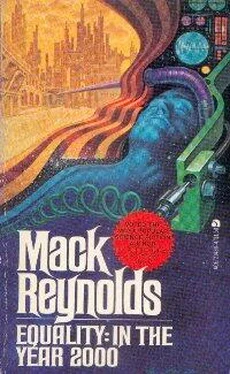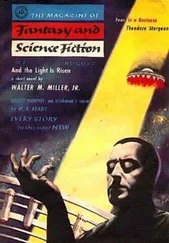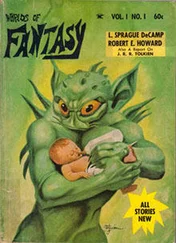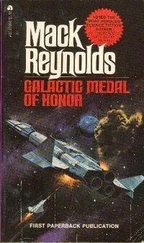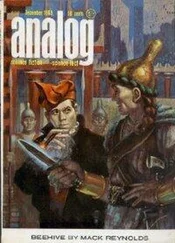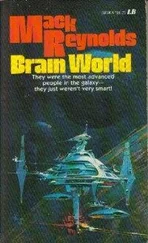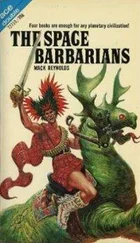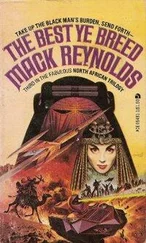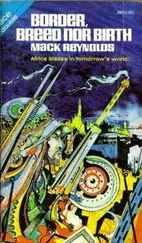Mack Reynolds - Equality - In the Year 2000
Здесь есть возможность читать онлайн «Mack Reynolds - Equality - In the Year 2000» весь текст электронной книги совершенно бесплатно (целиком полную версию без сокращений). В некоторых случаях можно слушать аудио, скачать через торрент в формате fb2 и присутствует краткое содержание. Год выпуска: 1977, ISBN: 1977, Издательство: Ace Books, Жанр: Фантастика и фэнтези, на английском языке. Описание произведения, (предисловие) а так же отзывы посетителей доступны на портале библиотеки ЛибКат.
- Название:Equality: In the Year 2000
- Автор:
- Издательство:Ace Books
- Жанр:
- Год:1977
- ISBN:0-441-21430-4
- Рейтинг книги:3 / 5. Голосов: 1
-
Избранное:Добавить в избранное
- Отзывы:
-
Ваша оценка:
- 60
- 1
- 2
- 3
- 4
- 5
Equality: In the Year 2000: краткое содержание, описание и аннотация
Предлагаем к чтению аннотацию, описание, краткое содержание или предисловие (зависит от того, что написал сам автор книги «Equality: In the Year 2000»). Если вы не нашли необходимую информацию о книге — напишите в комментариях, мы постараемся отыскать её.
Equality: In the Year 2000 — читать онлайн бесплатно полную книгу (весь текст) целиком
Ниже представлен текст книги, разбитый по страницам. Система сохранения места последней прочитанной страницы, позволяет с удобством читать онлайн бесплатно книгу «Equality: In the Year 2000», без необходимости каждый раз заново искать на чём Вы остановились. Поставьте закладку, и сможете в любой момент перейти на страницу, на которой закончили чтение.
Интервал:
Закладка:
He looked about the huge, Grecian-style lobby, wondering where the Cub Bar might be.
A bright young thing, done up in the usual coveralls which seemed to be the most popular garb for either sex, came up to him and said in Interlingua, “May I help you? You’re Mr. West, aren’t you?”
He said haltingly, in the same language, “Why, yes. Thank you. I was looking for the Cub Bar.”
“The Cub Bar is just down there. At the end of that corridor. It’s fascinating to meet you, Mr. West.”
She was looking at him smilingly, as though expecting him to say something further, but all he could think of was, “Thank you, very much.”
She looked disappointed, turned and left. He watched her go, feeling somehow inadequate, but he didn’t know why.
The Cub Bar, it turned out, had little to bear out its name, so far as the bars with which he had been familiar with in the past were concerned. And he had been familiar with a good many.
About all it had in common with the places he remembered was rather dim light. There was no bar, complete with barman, at which one could sit. There was no jukebox, thank God, although there was very faint background music issuing from somewhere he couldn’t determine. There were booths and there were tables, and the walls were tastefully done with paintings, largely representational, and very beautiful tapestries.
He located Sean O’Callahan, or, rather, the archaeology-history student located him and was waving. Julian made his way over to the booth. Two others were seated with him, both of them older men, in their fifties or early sixties.
Sean stood at his approach, looking more pleased than Julian thought was called for.
He slid into the booth and waited for the introductions. He had rather expected the persons Sean O’Callahan had wanted him to meet to be contemporaries of the younger man.
Sean said, “Julian West Van Hass, may I introduce William Dempsey Harrison and Frederic Madison Ley.”
On a quick sizing-up, Harrison emanated energy and even aggression, a stocky, confident type in excellent physical shape for his years. Ley reminded him more of the movie star of yesteryear, a sleepy, otherwise expressionless look about his face. His body had just slightly gone to flab. Even before he spoke, Julian was of the opinion that he wasn’t much given to talk.
They shook hands, went through the usual amenities, then Harrison, with a quick wave of his hand to indicate their three glasses, said, “We’ve already ordered. What would you like?”
To his surprise, Harrison and Ley obviously had highballs of one sort or another. Only Sean had a beer glass before him.
Julian asked for Scotch and soda, and Harrison, who seemed to be senior member of the team, put his transceiver in the payment slot of the table and dialed for it.
Ley drawled, “Yeah, we used to drink a lot of Scotch in the old days. It’s mostly belly-wash they drink now.”
Julian’s drink came. He raised his glass by way of a toast. “Sean tells me that I’m quite a freak, what with being a war veteran and all.”
Ley said quickly, “I was in ’Nam.”
Harrison looked at him. “Yes, but it was a long time ago, wasn’t it?”
The other lapsed into silence. It was obvious that he deferred to the aggressive Harrison.
Sean beamed. He was pleased with his success in pulling off this gathering.
Harrison stared at Julian West for a long moment. “We’ve been hearing about you on the News for a long time. You know, of those who went into hibernation, you’re the first to be awakened. And nobody else was put under for something like ten years after you volunteered.”
“So I understand,” Julian said easily. “But I didn’t exactly volunteer. No old soldier ever volunteers. With me, it was a matter of going into stasis, or dropping dead in my tracks at any moment.”
Harrison nodded. “At any rate, you’re the one person around who really remembers the old days.”
“I remember them,” Ley growled.
Harrison didn’t even look at him. “You were a kid,” was all he said.
He leaned back to observe Julian some more. He seemed to come to some conclusion. “What do you think of our present socioeconomic system, Mr. West, after several weeks with us?” There was a cautious note in his voice that Julian couldn’t quite understand.
“Why, I suppose it’s the nearest thing to Utopia that the race has ever achieved.”
Harrison said carefully, “There have been other ‘near Utopias,’ you know.”
Julian took another pull at his drink. “It’s not my field, but… An example?”
Harrison put his elbows on the table and tented his fingertips. In a somewhat condescending manner he replied, “Ancient Egypt, for instance.”
Julian laughed a little. “Oh come now, you’re putting me on. Say ‘Ancient Egypt’ to me and the first picture that flashes to mind is an overseer with a whip giving it to a dozen slaves who are pushing an oversized cut stone along on rollers for a half-finished pyramid in the background. That’s Utopia?”
The other waggled a finger at him. “There are a good many misconceptions, even among anthropologists, about the early dynasties of Egypt. The Pharaoh was not a king, Mr. West, and the people were not slaves. Later, things were to change—please keep that in mind—but the early Pharaohs, both of the Upper and Lower so-called kingdoms, were the equivalent of tribal chieftains, elected by the clan elders. And slavery had not evolved as yet. The people were comparatively free and their institutions democratic. The clan elders were elected by the clansmen; they were not hereditary. Even Menes, the Pharaoh who is accredited with uniting Upper and Lower Egypt, was not a monarch but a revered war chief and high priest. At this stage, the Egyptians as a people maintained a surprising standard of living as compared to the rest of the world. Considering that nine-tenths of the human race at the time were wearing animal skins—the Egyptians already had cotton—and surviving as best they could in a Neolithic hunting-and-gathering economy, Egypt was a Utopia indeed. It was after the first ten dynasties or so that the democratic institutions eroded, at least in part, and the clan chiefs became hereditary, as did the Pharaohs. Slavery was introduced, though to a lesser degree than is usually supposed. The everyday Egyptian was not a slave beaten with whips.”
Julian was out of his depth. Wondering how in the hell the conversation had taken this bent, he commented, “Well, I suppose a case could be made for what you say. I suppose it’s a comparative thing—Utopia. Undoubtedly, a thousand years from now our descendants will look upon this period and consider us semi-barbarians.”
“Possibly, if this present socioeconomic system continues, Mr. West.”
Julian sipped his drink and frowned at the other questioningly. Harrison didn’t seem particularly interested in his drink, nor did Sean or the dour Ley.
Harrison said, “The pyramids of Gizeh, the greatest constructions of antiquity, were built during the Fourth Dynasty, roughly 2700 B.C. So was the Sphinx, one of the most noble pieces of sculpture ever produced. In this early Utopia of ours, art was well established. The point I was building up to is that three thousand years were to pass without any fundamental changes in Egyptian art, its sciences, its technology; in short, its way of life. There was seemingly no need for change. The Nile fed them abundantly, their clothing needs were minimal, as were their housing needs in that climate. They had it made, so to speak. Oh, there were ups and downs on the political scene. For about a hundred years the Hyksos, the so-called shepherd-kings, ruled them, and at another point the black Nubians took over. But these conquerors didn’t basically change the socioeconomic system. It was still a comparatively stilted Utopia for the average Egyptian. It wasn’t until the coming of the Greeks under Alexander and the progressive rule of the Ptolemies that Egypt began to break out of the cocoon in which she had existed for three millennia.”
Читать дальшеИнтервал:
Закладка:
Похожие книги на «Equality: In the Year 2000»
Представляем Вашему вниманию похожие книги на «Equality: In the Year 2000» списком для выбора. Мы отобрали схожую по названию и смыслу литературу в надежде предоставить читателям больше вариантов отыскать новые, интересные, ещё непрочитанные произведения.
Обсуждение, отзывы о книге «Equality: In the Year 2000» и просто собственные мнения читателей. Оставьте ваши комментарии, напишите, что Вы думаете о произведении, его смысле или главных героях. Укажите что конкретно понравилось, а что нет, и почему Вы так считаете.
